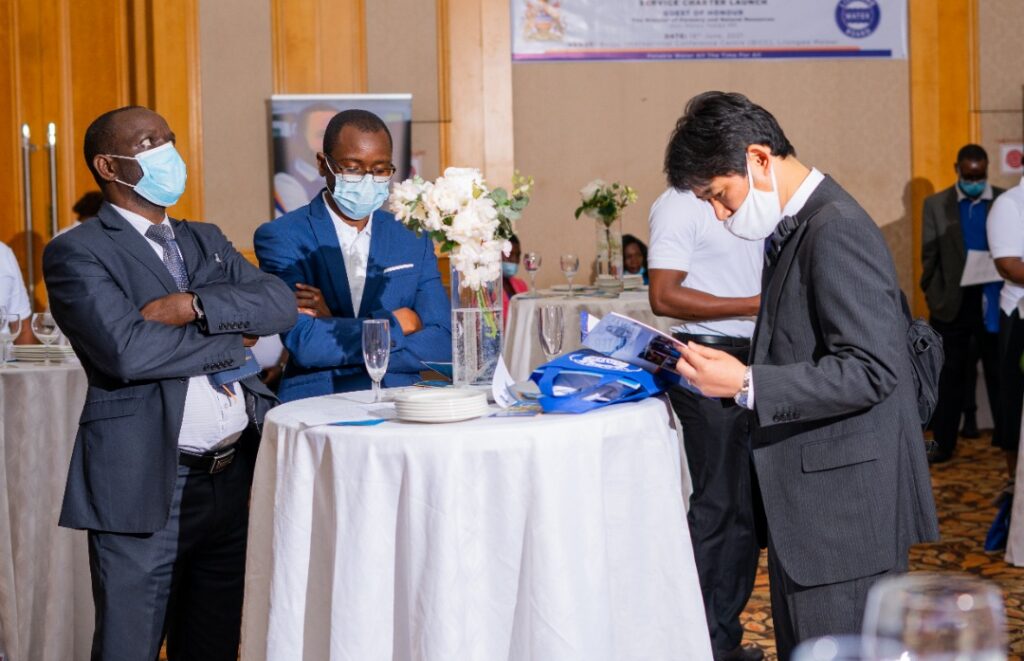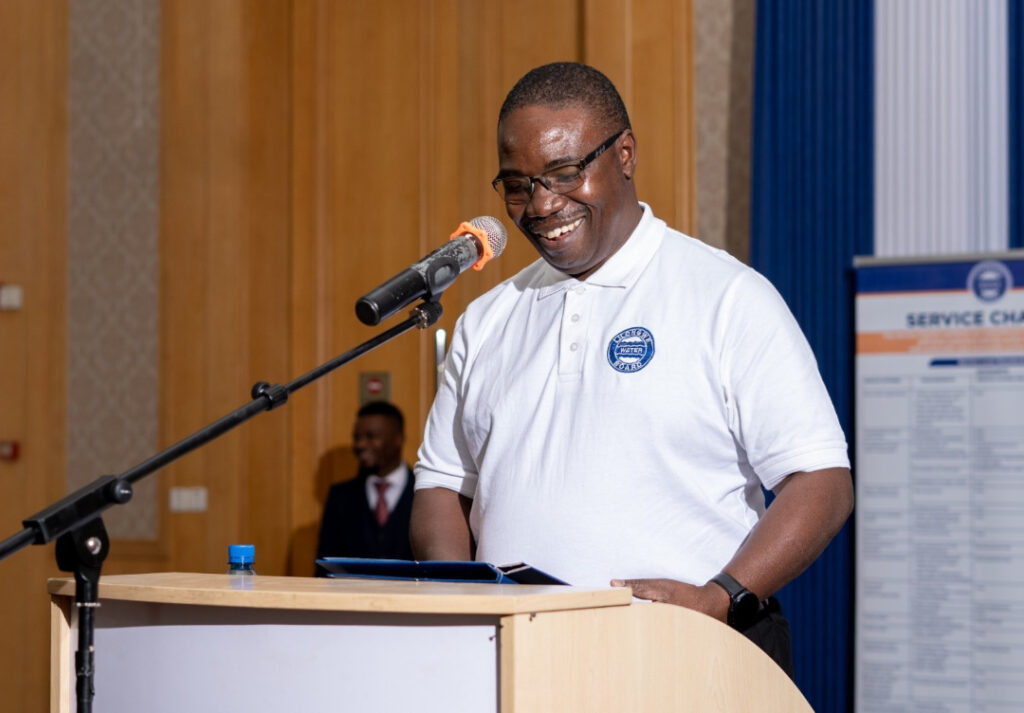
The Lilongwe Water Board (LWB) continues making strides as an innovative utility in Malawi and southern Africa with the latest being the launch of a mobile application for its customers as well as its 2020-2025 Strategic Plan and the revised Customer Service Charter.
On Friday (18th June, 2021) the Board unveiled LWB Madzi App during the official launch of its five-year Strategic Plan and revised Customer Service Charter at Bingu International Conference Centre (BICC) in Lilongwe. The App which is accessible for both Android and iOS, is expected to enable LWB customers to easily manage their water board accounts.
Speaking during the launch, Minister of Forestry and Natural Resources, Nancy Tembo said the 2020-2025 Strategic Plan is in line with the country’s strategic planning blueprint – The Malawi 2063.
“The development of a new Strategic Plan by Lilongwe Water Board is, therefore, a very positive development in meeting the Government’s development agenda. The Strategic Plan provides a road map and a blueprint for Lilongwe Water Board in its mandate of providing potable water and safely managed sanitation services to communities in Lilongwe City,” Tembo said.

Tembo expressed optimism that the Lilongwe Water Board will be able to attain what has been stipulated in the Strategic Plan and pledged to hold the Board accountable for the stipulations of both the Strategic Plan and the Customer Service Charter.
“The significance of the Strategic Plan cannot be overemphasized, particularly where at the end of the Strategic Plan’s cycle in 2025, the Board is setting itself up to be ‘A leading, customer-focused, financially viable water and sanitation utility in Africa.’ I have taken note of your commitment to attaining this milestone,” she added.
On his part, LWB Board Chairperson, engineer George Kajanga said LWB is a futuristic and progressive water utility that would want to satisfy the aspirations of its customers in line with its establishment mandate all the time.
Kajanga added that the Board has significantly improved its performance in water supply coverage, revenue collection, infrastructure investments, and customer satisfaction, adding that its success in these areas has been recognized locally and internationally as attested by the numerous awards it has received over the period of the last Strategic Plan.

“The successes registered in the implementation of the just ended Strategic Plan (2015-2020) have set the standard and raised the bar of service delivery expectations among our customers. We do realize that our achievements should not make us complacent; we cannot afford to sit on our laurels and that is why we are launching this new Strategic Plan. Our drive is to achieve more and excel all the time,” Kajanga said.
Lilongwe Water Board has developed the five-year Strategic Plan to ensure improved service delivery, enhance corporate performance, and creating a high return on investment for stakeholders.
The Strategic Plan budgeted at US$ 483Million (about K 362 billion), focuses on the reliability of water supply, non-revenue water reduction, customer satisfaction, and financial capacity for infrastructure development, institutional and human capacity development, and wastewater management.

The Board has also reviewed its Customer Service Charter to ensure that all its valued customers are aware of the services it provides and the commitment to quality service delivery. The Charter reaffirms the Board’s commitment to improve service delivery and meet customers’ and the public’s expectations with achievable and measurable performance standards.
The main objective of this Service Charter is to establish both customer trust and a reputation for excellent service delivery. The charter spells out Lilongwe Water Board’s commitment to meeting customers’ needs.
Between 2015 and 2020, Lilongwe Water Board has managed to improve water sales collection efficiency from 80-90 percent mainly through the installation of prepaid meters; improve customer satisfaction; construct a new office complex called Malingunde Centre, increase water supply infrastructure; increase customer connections, and set up various innovations such as Bilu Pompo, E-madzi Automated Kiosks, remote tank monitoring and customer Call-Centre (253).




